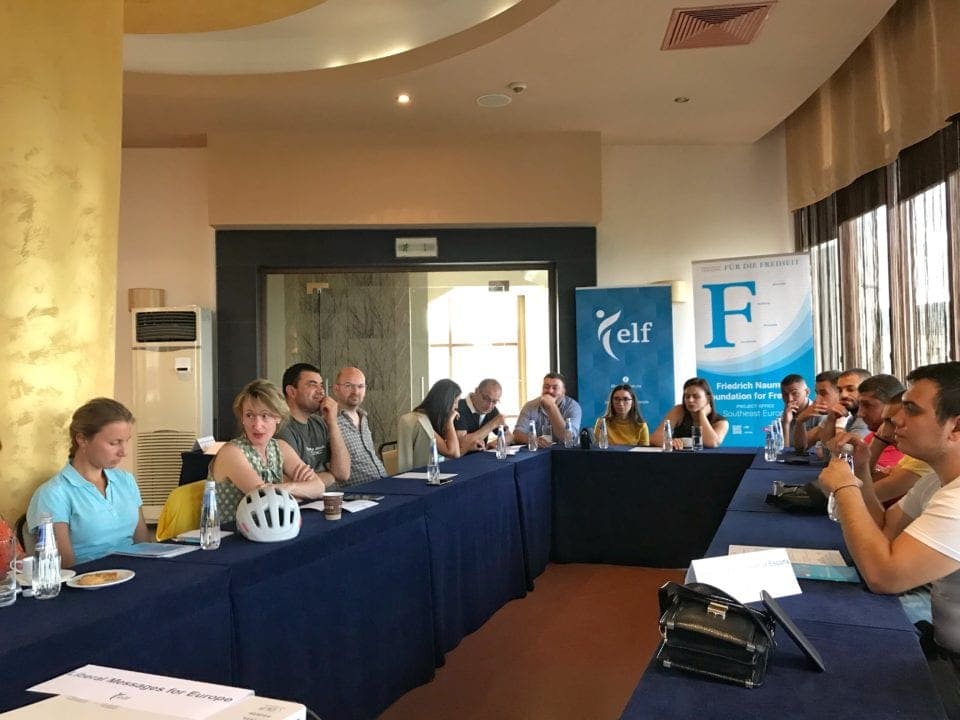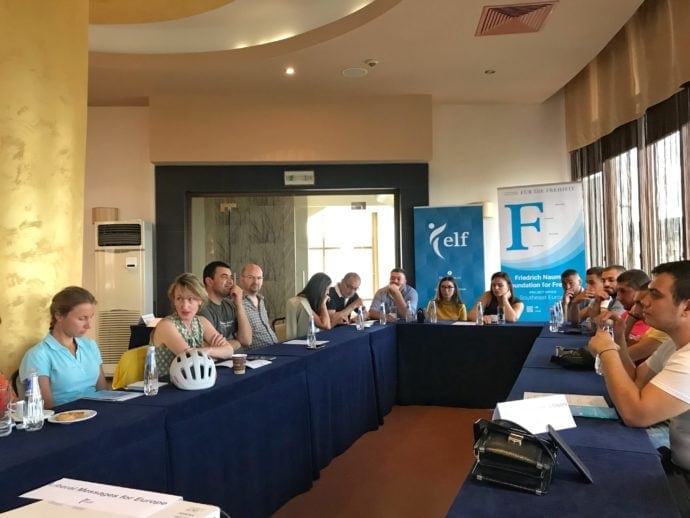The aim of this project is to foster a dialogue to understand the expectations of liberal minded persons without party affiliation and find the relevant topics for liberal parties to position during the election campaign and beyond. According to the suggestions of ALDE party, this project would enable entail a citizen’s dialogue series to support the drafting of election manifestos in Bulgaria and Romania.
The last workshop from the “Liberal messages for Europe” ELF events series in Bulgaria was held in the coastal city of Varna. The event took place on 13 July 2018 and was supported by the Project Office for Southeast Europe of the Friedrich Naumann Foundation for Freedom and the Liberal Institute for Political Analyses.
A vast amount of citizens from variety of professional fields actively participated in the workshop which was held according to the preliminary set format. The topics discussed contributed to the identification of a wide range of challenges for the European Union and possible policy approaches. As an active member state of the Community for more than 10 years now, Bulgaria plays an important role for protecting the outer borders and serves as buffer between Europe and Asia, according to the attendees. The contribution of the country for the Union includes also, but is not limited to strategic geographical place with beautiful nature, good market place for investments, provision of educated workforce for the Union, unique culture etc. The Bulgarian ethnical and religious model also contributes to the cultural variety within the EU and could serve as a role model.
The format of the workshop provided the participants with the opportunity to discuss the challenges to the European Union and to identify the areas where proactive stance is expected from EU institutions. In their opinion, the stability of the Union is threatened due to Brexit, the migration crisis, the differences between big and small member states. Processes of multi-speed cooperation also undermine the EU as such, as long as they occur without a common vision for the future shape of the EU. It is necessary for the Union to create a common, long-term strategy that could unite all the member states. A better communication and a consensus on strategic topics is needed as well. The prospect membership to the Balkan countries and the new enlargement process are a challenge, especially if a new strategy for the future of the EU is not developed and consensualy adopted. Common defense and security, monetary union, human rights, and climate change are all crucial areas where more Europe is urgently needed and concrete political integration expected.
The insightful discussions about the citizen’s expectations for the future of the EU will contribute to the elaboration of a Strategic Paper for the better positioning of the national and European liberal parties at the upcoming European Parliamentary elections and beyond.

